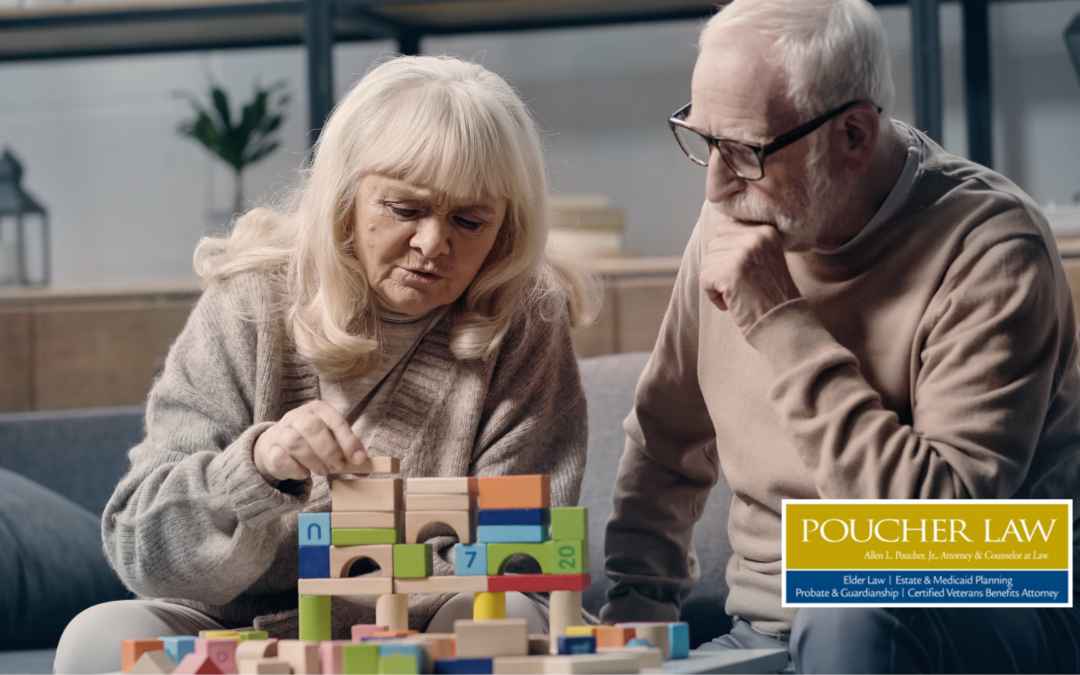Do you have a loved one who was recently diagnosed with Alzheimer’s disease? We know that this is a challenging time both for your loved one and you. Do you know exactly what Alzheimer’s is and what it may mean for your loved one? Alzheimer’s disease is a type of dementia that can cause problems with memory, thinking, cognition, and behavior. Symptoms usually, but not always, develop slowly and worsen over time. The end-stages of the disease can become life-threatening.
Is there possibly a cure for Alzheimer’s disease? Not at this time. With that being said, early detection offers the best chance for effective treatment and improved quality of life. Currently memory loss is the most widely recognized early warning sign of Alzheimer’s. Do you know if your loved one is experiencing memory loss? If the answer is yes, then you can show your support by acting on this knowledge about your loved one’s memory loss and begin to research treatment options. Because November is Alzheimer’s Awareness Month we want to share resources and ideas for you and your loved one.
It is a definite challenge to be the caregiver for a loved one with Alzheimer’s disease. We would like to share some ways to make the caregiving experience more manageable for you and your loved one. Here are 9 helpful tips to aid your loved one with Alzheimer’s disease:
1. Begin now to learn as much as you can about this disease: Understanding the progression of Alzheimer’s and its symptoms can help you better anticipate and respond to your loved one’s needs.
2. Keep a structured routine: By having a consistent daily routine you will help your loved one feel more secure and less confused.
3. Start using visual cues: Visual cues, such as labels on drawers and doors, can help your loved one navigate the environment and find what he or she needs.
4. Socialization is important and should be encouraged: Socialization can help your loved one maintain a sense of self and feel more connected to his or her community.
5. Respite care is very important: Taking care of a loved one with Alzheimer’s can be emotionally and physically draining. It is very important to take breaks and seek respite care to prevent burnout.
6. Learn how to communicate effectively with your loved one with Alzheimer’s: Be aware that many people with Alzheimer’s may have difficulty with communication. You will want to try to understand and communicate with your loved one in a way that he or she can understand.
7. Be sure to look after your own well-being and health: It is important that you, as your loved one’s primary caregiver, take care of your own physical and emotional well-being. Eat healthy, take walks and find a caregiver group to meet with.
8. Find support groups and resources: Did you know that there are support groups and resources available for caregivers of loved ones with Alzheimer’s? It is important to take advantage of these resources and build a support system for yourself.
9. As much as possible, be patient and flexible: Caring for a loved one with Alzheimer’s is challenging, but it is important to be patient, flexible and kind in your approach.
Remember, every person with Alzheimer’s is unique and the way the disease progresses for each person is different. Another suggestion would be to work with healthcare professionals, such as a geriatric care manager, to develop a personalized care plan for your loved one.
Planning for the future is critical to ensure that your goals for the end of life are achieved. We know this article may raise more questions that it answers. We do telephone, computer, and face-to-face appointments. Our face-to-face appointments are held outside in the open air (frequently selected by clients for document signing) and inside our office conference room. We follow all CDC guidelines. Our office procedures adhere to COVID-19 safety protocols and are designed and enhanced by medical review and air quality engineering.

